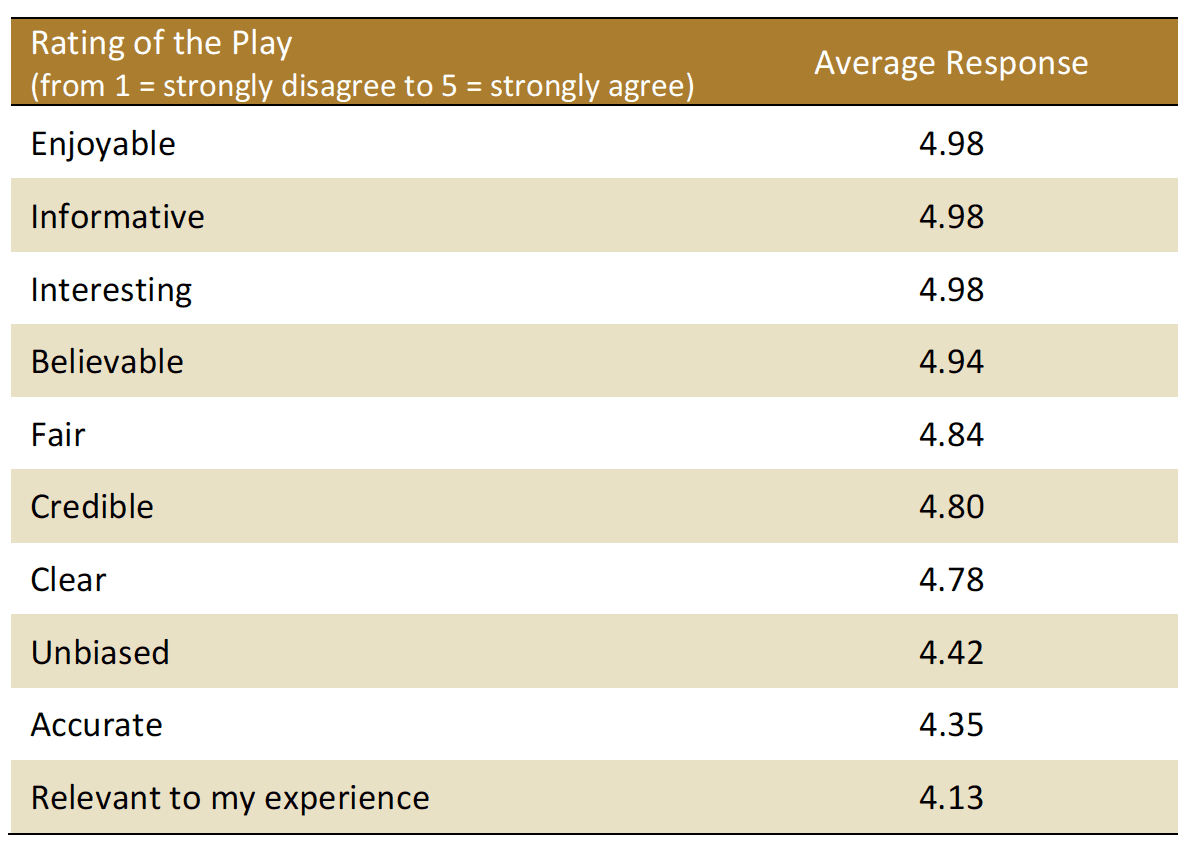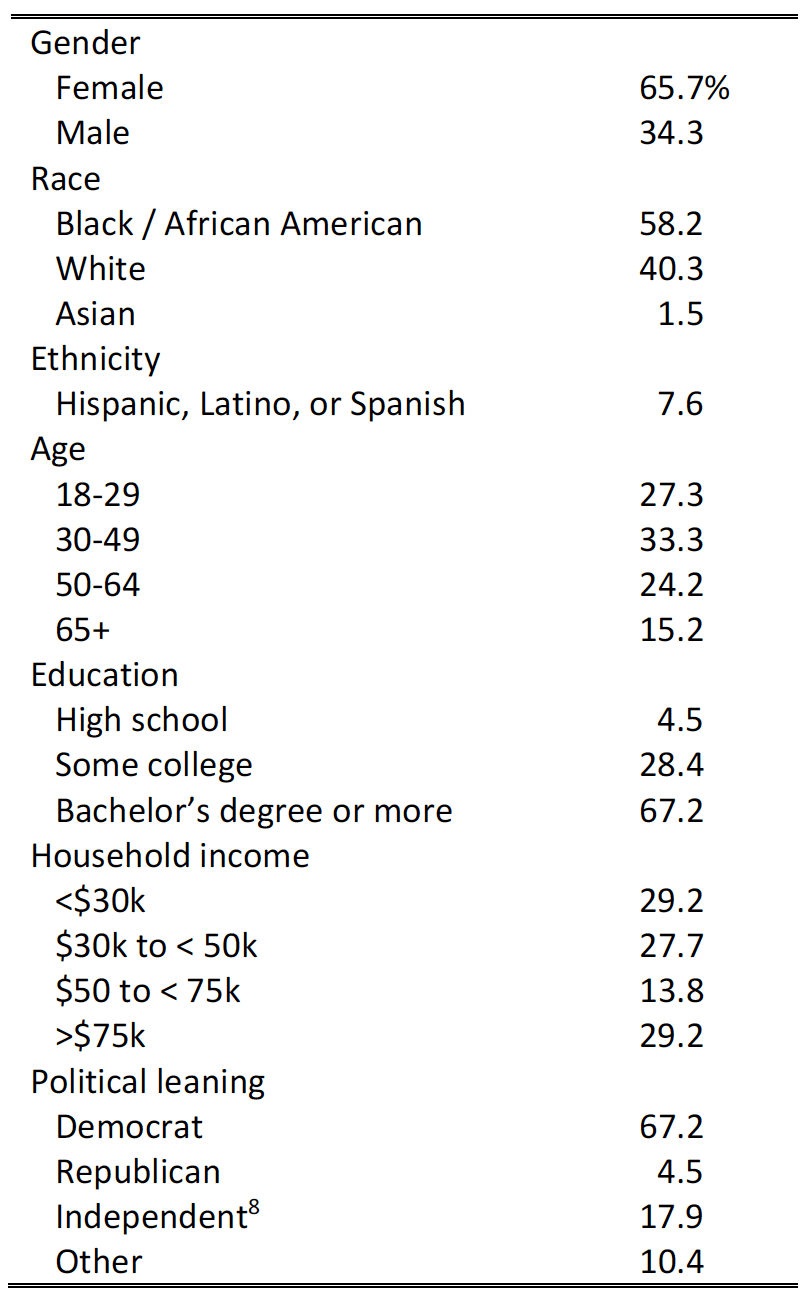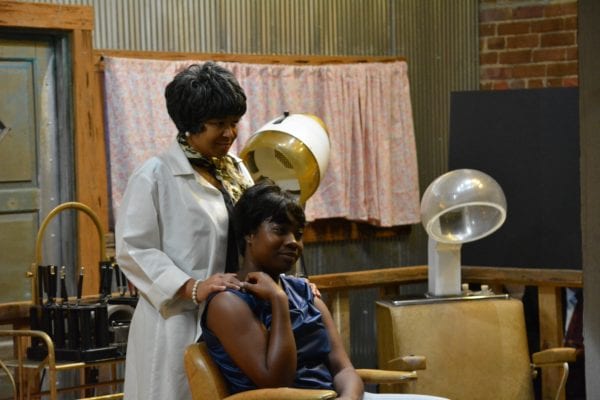
What counts as news has been undergoing a revolution. Standard news articles are complemented by new formats like tweets, memes, and, as we investigate here, plays. The Center for Media Engagement at the University of Texas at Austin conducted an experiment, funded by and in partnership with The Center for Investigative Reporting (CIR), to analyze how audiences responded to a play. The play was about civil rights leader Vera Mae Pigee and was produced in Clarksdale, Mississippi as a partnership between CIR and Mississippi Today, a local nonprofit news organization.
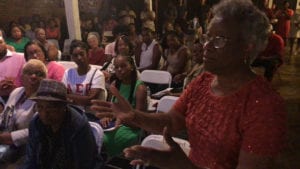
In this research – something that we will replicate before reaching any firm conclusions – we found that audience members were more confident in their political knowledge and their ability to engage in the political process after watching the performance than they were beforehand. The preliminary results suggest that live theater performances based on investigative journalism can help to politically empower audiences.
The Study
The Center for Investigative Reporting, a nonpartisan and nonprofit investigative journalism organization based in the San Francisco Bay Area, worked with community members in Clarksdale, Mississippi, to produce an original play about the life and legacy of local civil rights activist Vera Mae Pigee. Drawing on interviews conducted by four journalists – including one from Mississippi Today – and led by CIR’s StoryWorks director, the play “Beautiful Agitators” explored Pigee’s efforts to register thousands of African Americans to vote. “Beautiful Agitators” was written by Jessica James, Nick Houston, Charles Coleman and Aallyah Wright, and was directed by StoryWorks creator Jennifer Welch. The play was presented at Crossroads Cultural Arts Center in downtown Clarksdale three times between August 14th and August 16th 2017.
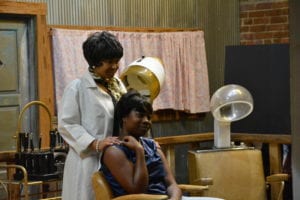
Audience members were invited to participate in a survey before and after watching the play. We randomly asked half of the participants to answer our key measures before they saw the play, and the other half to answer these questions after they saw the play. This allowed us to compare what people thought prior to seeing the play to what they thought after the play.
In total, 67 people aged 18–74 completed the survey. They answered questions about how confident they were in their knowledge about politics and government, their likelihood of engaging in civic or political activities, their knowledge about issues addressed in the play and the media organizations involved in it, as well as other questions as detailed below.
Political Information Efficacy Was Higher
Political information efficacy focuses on a “voter’s confidence in his or her own political knowledge and its sufficiency to engage the political process.”1 To measure it, participants were presented with four statements and asked to indicate from 1 (strongly disagree) to 5 (strongly agree) how much they agreed with each:
- I consider myself well qualified to participate in local politics.
- I think that I am better informed about local politics and government than most people.
- I feel that I have a pretty good understanding of the important political issues facing my community.
- If a friend asked me about a local election, I feel I would have enough information to help my friend figure out who to vote for.
The statements were averaged to create a measure of political information efficacy.2
Information efficacy was heightened after watching the play. Those answering the questions before the play rated these statements, on average, a 3.65. Those answering the question after the play rated these statements, on average, a 4.09.3
People Were More Knowledgeable About Mississippi Today
Those watching the play learned about the media organization involved in its creation.
- 48.5% of those answering questions before the play had heard of Mississippi Today, compared with 76.5% of the participants answering the questions after the play.4
- 39.4% of participants answering the survey before the play knew that Mississippi Today had a reporter based in Clarksdale, compared with 64.7% of those answering questions after the play.5
- 45.5% of those answering the survey before the play said Mississippi Today was sponsoring the play, compared with 73.5% after the play.6
Intentions To Participate Generally Not Affected; People Were More Likely To Say That They Would Contact a Local Public Official
Participants were asked how likely they were to do different political activities “during the next three months” from 1 (very unlikely) to 5 (very likely).
Participants who watched the play were more likely to say that they would contact a local public official. Those answering the question prior to the play replied, on average, 3.55. Those answering the question after the play replied, on average, 4.19.7
There were no differences in participants’ reported likelihood of attending a political meeting, rally, or speech; participating in a demonstration, protest, or march; attending a city council meeting; or going to a community or neighborhood meeting.
Participants were also asked how likely they were to do different civic activities: volunteering, working on behalf of a social group or cause, talking to a friend about the history of civil rights in the Delta, reading about the history of civil rights in the Delta, and attending another play. There were no differences between those completing the survey prior to the play and those completing it afterward.
Play Rated Positively
All 67 respondents were asked to evaluate the play after watching it on measures of how enjoyable, accurate, believable, informative, interesting, clear, credible, unbiased, fair, and relevant to my experience it was. In general, respondents rated the play positively.
Knowledge Not Affected
Factual knowledge about Vera Mae Pigee was relatively high among the audience, and we have no evidence that viewing the play affected knowledge of these facts.
- 75% knew that the main purpose of administering literacy tests in Mississippi was to keep people of color from voting.
- 55% knew that public schools in Clarksdale and Coahoma County were desegregated in 1970.
- 57% knew that around 1,000 civil rights activists were arrested by Mississippi police during the Freedom Summer and into the fall of 1964.
- 91% knew that white supremacist groups mainly bombed or burned churches during the Freedom Summer in 1964.
- 96% knew that Medgar Evers was assassinated by a white supremacist in 1963.
Other measures asking people to evaluate Mississippi Today and CIR also did not change before and after the play, although the number of people indicating familiarity with the source changed making the two groups not comparable.
Methodology
CIR created StoryWorks, a documentary theater project, through which they commission and stage original plays inspired by fact‐based investigations. On August 4‐6, 2017, CIR and Mississippi Today presented “Beautiful Agitators,” a play based on the life and legacy of Vera Mae Pigee. Pigee was an instrumental figure in the fight for civil rights and equality in Mississippi: from her efforts organizing direct action with young people to registering thousands of African Americans to vote. Based on interviews, research and reporting by journalists in Clarksdale, “Beautiful Agitators” explores the history of Pigee’s activism and the legacy that her work left behind. Each performance was followed by a conversation with the audience, which featured testimonials from community members about their connections to the civil rights movement and how the themes in the play resonate today.
The 67 participants completed survey instruments both before and after the play. For a random half of them, our key questions were included on the pre‐play survey and for the other half, the key questions were included on the post-play survey. On the other survey, respondents described their media use and demographics. The table alongside this paragraph presents the demographics and political leaning of the study participants to illustrate who participated in this study.8
SUGGESTED CITATION:
Tenenboim, Ori and Stroud, Natalie Jomini. (2018, February). A progress report: media engagement through theater. Center for Media Engagement. https://mediaengagement.org/research/theater-progress-report
- Kaid, L. L., McKinney, M. S., & Tedesco, J. C. (2007). Political information efficacy and young voters. American Behavioral Scientist, 50(9), 1093–1111. doi:10.1177/0002764207300040 p. 1096 [↩]
- 4 items averaged scale, Cronbach’s α = .85, Mean = 3.87, Standard Deviation = 0.88 [↩]
- Treatment group: Mean = 4.09, Standard Deviation = 0.84; Control group: Mean = 3.65, Standard Deviation = 0.89; t(62) = ‐2.03, p < .05 [↩]
- χ²(1) = 5.61, p < .05 [↩]
- χ²(1) = 4.30, p < .05 [↩]
- χ²(1) = 5.49, p < .05 [↩]
- Answering after the play: Mean = 4.19, Standard Deviation = 1.20; Answering before the play: Mean = 3.55, Standard Deviation = 1.33; t(63) = ‐2.04, p < .05 [↩]
- 100% of those who said they were “Independent” or “Other” and answered a follow‐up question about the party they leaned toward indicated that they were closer to the Republican Party. [↩]




